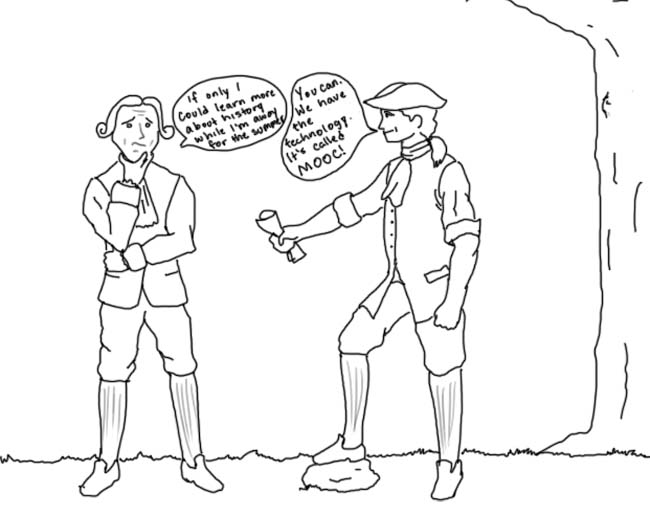Students eager to sample the College of William and Mary experience without the cost will finally have their chance this summer, as the College will offer its first massive open online course. Working in conjunction with Colonial Williamsburg, history professor James Whittenburg will teach a course on the American Revolution. This is an exciting opportunity for the College to test MOOCs as a viable option, to maintain strong relations with Colonial Williamsburg, and to advertise its teaching talent and historical expertise.
The College has been apprehensive about MOOCs, and understandably so: They have little financial value. Those who offer MOOCs see them more as a public service — a way to educate people who may not have the time, money or inclination to return to school. They also function as international online academic communities, where thousands of people contribute their unique perspectives and learn more than they ever could in a college classroom. Whether this is sustainable for colleges without gargantuan endowments is an important question — one that the College must address. In this case, however, Colonial Williamsburg will find a private donor to fund the MOOC, so the financial burden on the College will be minimal. Colonial Williamsburg’s agreement to cosponsor the MOOC is a sign of its commitment to preserving its historical bonds with the College.
For the MOOC to be successful, the College should incorporate suggestions from the history department and its students. As the College has nothing to lose from the MOOC, it should not be afraid to explore. It should ask other schools like Harvard University and Wesleyan University, which have successfully implemented MOOCs, for advice. It should study the leading MOOC company Coursera, which has partnered with over 100 universities offering MOOCs to millions worldwide. The College may ultimately decide that MOOCs are not a worthwhile investment, but its experiment should still provide quality, as it will represent the College to the broader community.
Within the Williamsburg bubble, it is hard to imagine a corner of the nation unfamiliar with the College and its prestige, but that corner exists. Collaborating with Colonial Williamsburg could provide the College more national exposure. Adults taking the course could suggest it to their children, and the College could perhaps encourage more out-of-state students to apply. In addition, a global audience would benefit from learning U.S. history from the College: Not only are the colonial era and American Revolution fundamental aspects of American history, but also the College has an excellent history department.
Whittenburg is one of the most respected and beloved professors in the history department and at the College. Specializing in early American history, Whittenburg is uniquely suited to showcase the College’s historical prowess.
As of now, Colonial Williamsburg has not found a donor for the MOOC. Private organizations with a love for history should consider helping the College expand its horizons, maintain a strong relationship with its historical roots, and promote a global community of learning.

